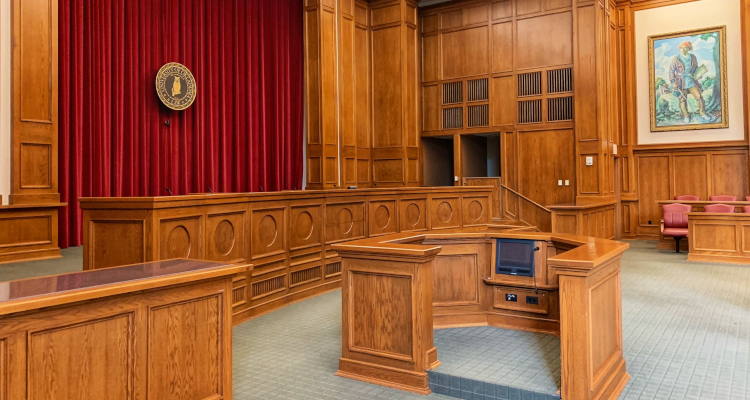
RIAA vs Yout Legal Battle Heats Up: Stream-Ripper Demands YouTube's Input in Appeals Court
A significant legal battle is unfolding in the U.S. Court of Appeals for the Second Circuit between stream-ripper Yout and the Recording Industry Association of America (RIAA). This case highlights crucial questions about copyright protection and technological circumvention in the digital age.

Courtroom interior with red drapes
The dispute centers on Yout's stream-ripping service, which allows users to download audio from YouTube videos. The RIAA issued three DMCA takedown notices to Google, claiming Yout bypasses YouTube's "rolling cipher" anti-piracy technology. In response, Yout filed a lawsuit arguing that their service doesn't circumvent technological measures but rather automates a process users could perform through web browsers.
Key developments in the case:
- Initial dismissal in 2021, followed by dismissal with prejudice in 2022
- Yout's subsequent appeal challenges the dismissal's legal basis
- Recent oral arguments revealed critical points of contention
During the oral arguments, Yout's attorney Evan Fray-Witzer emphasized the need for YouTube's direct input regarding their technological measures and their intended purpose. The RIAA's attorney Rose Ehler maintained that Yout's service constitutes circumvention, notably arguing that even manual downloading through web browsers qualifies as "hacking."
A particularly telling exchange occurred when Judge Richard Sullivan questioned the RIAA's position:
"I'm not hacking anything, right?" the judge asked. "I mean, I'm just going to – I could do this right now in this courtroom on my computer, probably, right?"
"Your Honor could; I think it would be hacking," responded Ehler.

YouTube 3D player buttons interface
This case's outcome could have significant implications for stream-ripping services and the broader interpretation of technological protection measures under copyright law.
